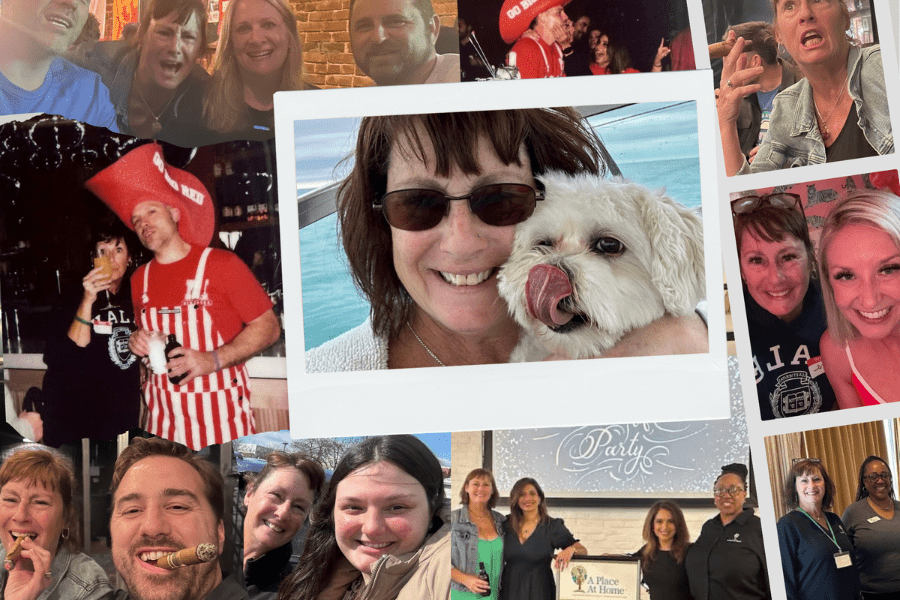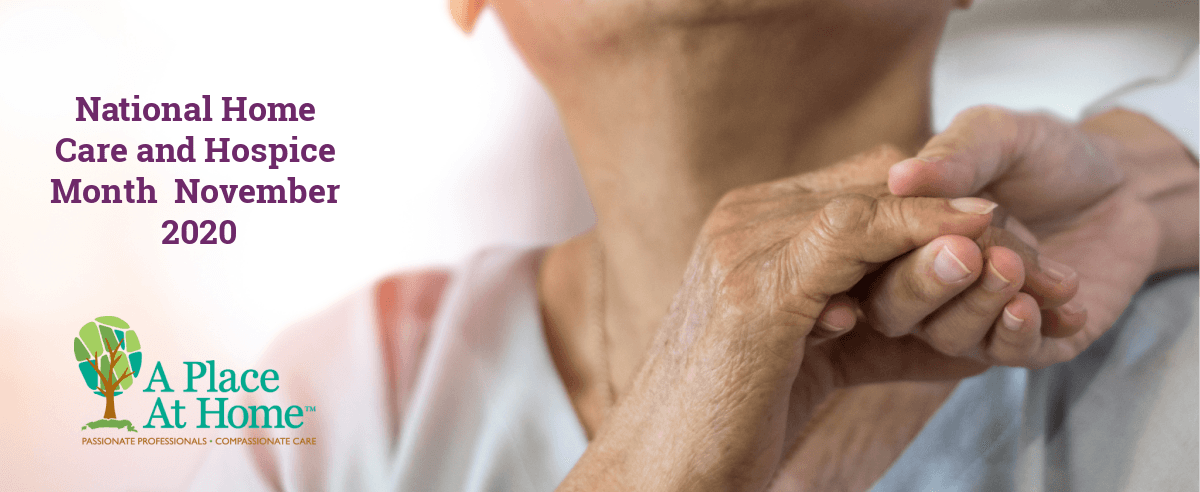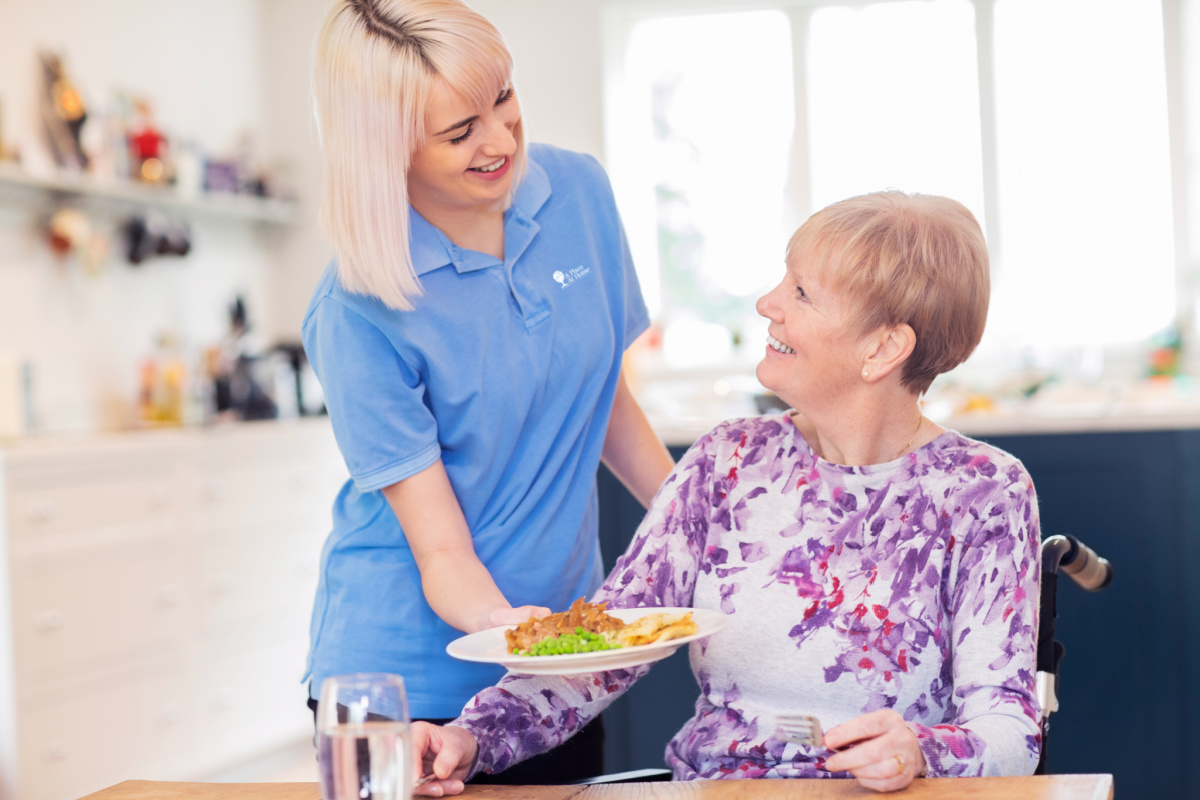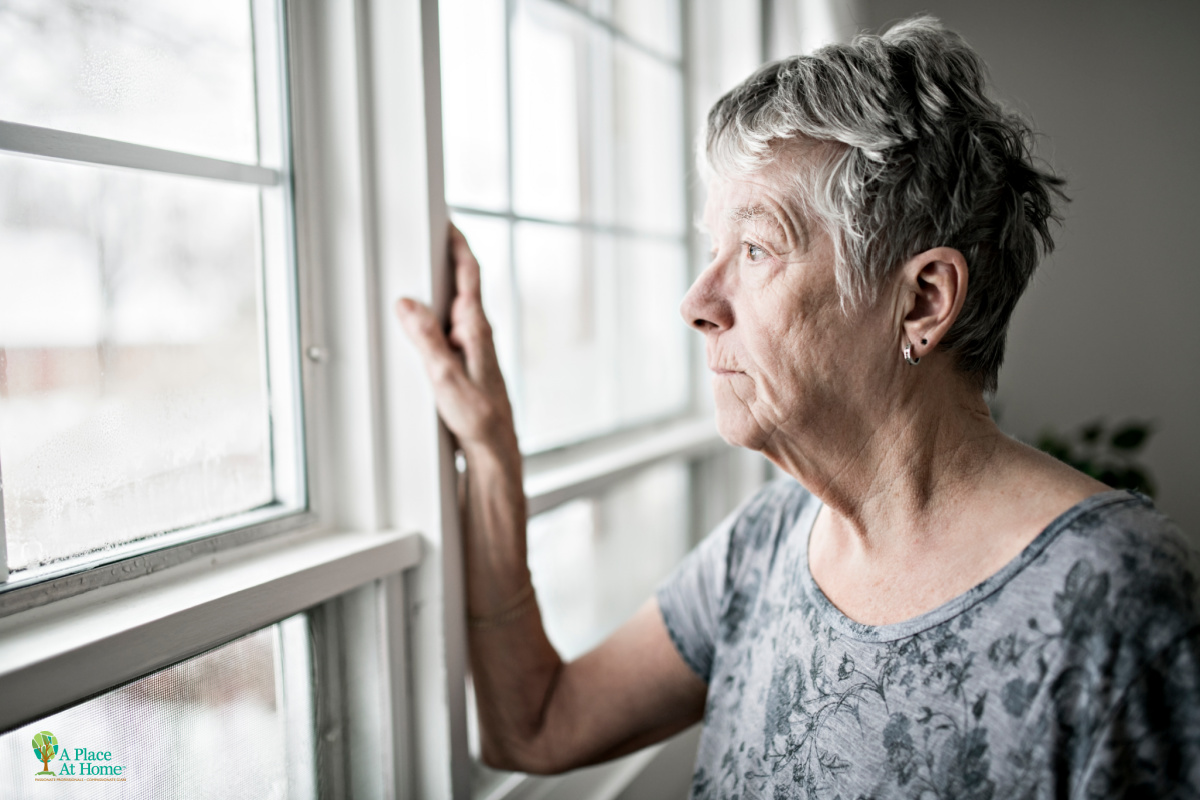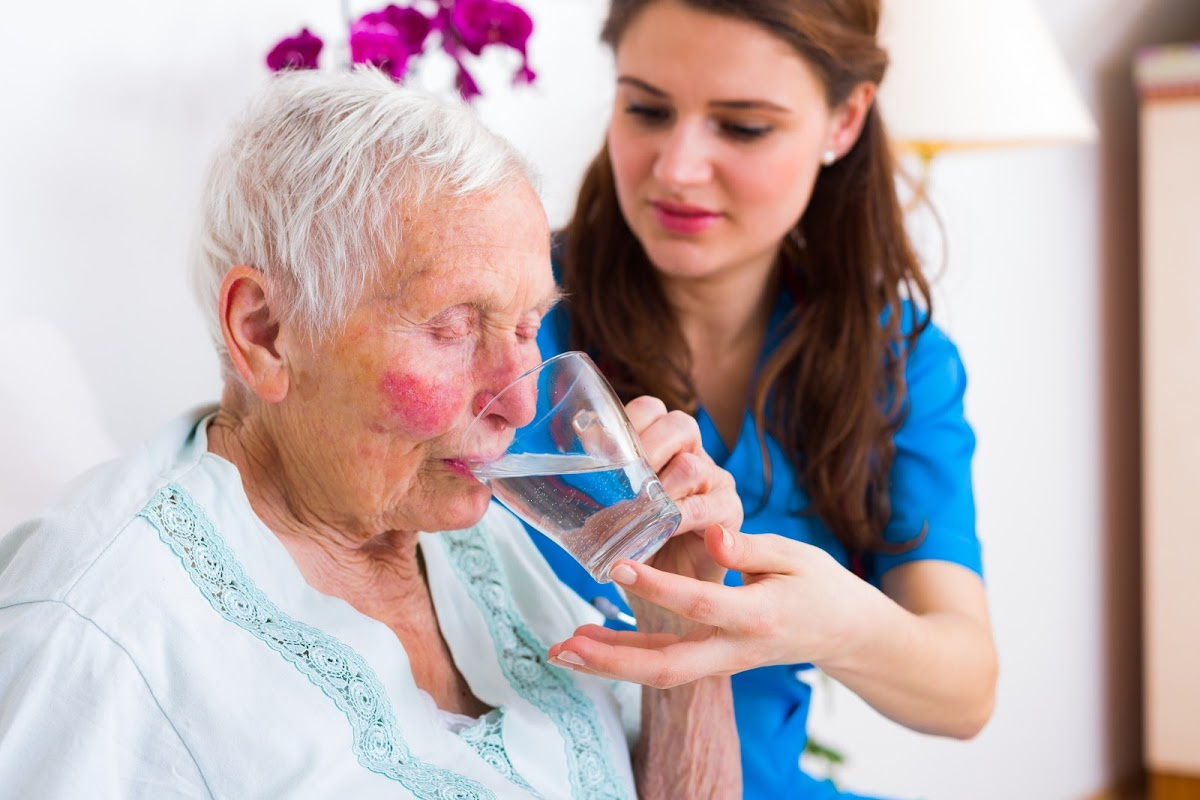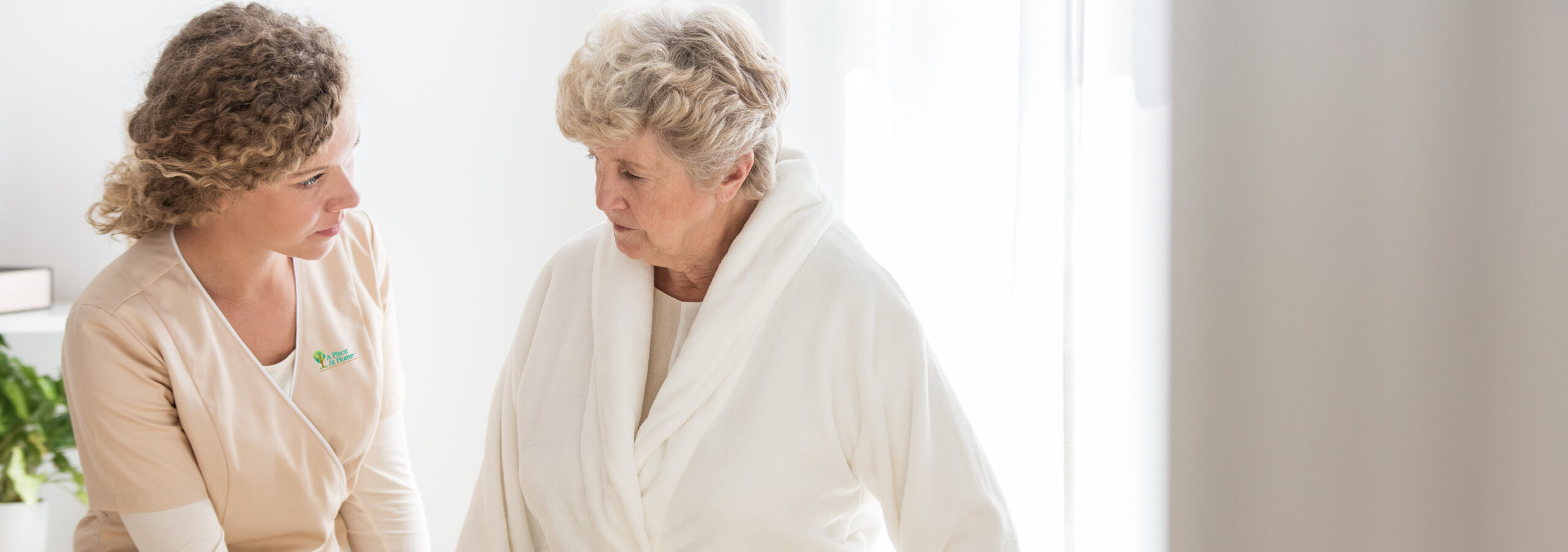On May 3rd, 2025, our A Place at Home family suffered a heartbreaking loss. Dina Jenney, franchise owner of A Place at Home – Philadelphia West, passed away far too soon. She was 55 years old, and while her time with us was cut short, her impact will live on forever—in the lives she changed, the business she built, and the legacy she leaves behind for her family.
Dina was more than a franchise owner; she was the embodiment of our CARE values—Compassion, Accountability, Respect, and Ethics. From the moment she joined A Place at Home, Dina poured herself into the mission. She didn’t just operate a home care agency; she created a sanctuary of comfort and dignity for the seniors in her community. Every detail mattered to her because every person mattered to her.
Her journey to home care came after decades of serving others in the hospitality industry. Alongside her husband and best friend, Paul Jenney, she brought her gifts of leadership, empathy, and boldness into a new calling that would ultimately transform lives. Together, they built A Place at Home – Philadelphia West from the ground up, driven by compassion and a commitment to do good in the world.
Dina’s greatest joy, however, was her family. She was a devoted wife to Paul, and a fiercely loving mother to five children: Celia Kelley (Alex), Hillary Jenney, Paul Jenney Jr., Isabella Jenney, and Patrick Jenney. Her family was her anchor, her “why”, and her constant source of pride. She is also survived by her mother, Miriam Passarella, her sister Nicole Passarella, her cherished pets Percy, Luna, and Madison, and a community of friends who were like family. She is now reunited with her beloved father, Richard “Big Dick” Passarella, and her brother Richard.
Dina had a magnetic personality. She was as real as they come—equal parts badass and big-hearted. She told it like it was and loved with everything she had. Whether she was mentoring fellow franchisees, jamming to Maroon 5 with the top down, or staying up late at convention to pour into others, Dina lived fully and unapologetically.
She once said A Place at Home filled a cup she didn’t know she had. In truth, she filled countless cups—of clients, caregivers, peers, and friends. Her legacy is fierce compassion, community, and leadership that lives on through her family and everyone who had the honor of knowing her.
As an organ donor through the Gift of Life program, Dina’s selflessness didn’t end with her passing. Even now, she is saving lives. She would be proud of that, and we are proud to have called her one of our own.
A Message from Dustin Distefano, CEO & Co-Founder of A Place at Home
First and foremost, this is probably the hardest loss I’ve experienced personally.
When Dina and I first met, I was her “micro-manager”—her words, not mine. She always joked about it. But from day one, she held me accountable, too. She’d call me out on my bullshit in the most loving way possible. What started as a transactional relationship between franchisor and franchisee grew into much more. Over time, she became one of my best friends.
This loss feels like losing family.
When I started A Place at Home, I had a personal “why” behind it. Dina added to that “why.” Why do I franchise? Why do I love franchising? Because of people like Dina Jenney. She loved this brand. She wore it on her sleeve and carried it in her heart.
One of my last conversations with her was at our recent convention. She had a few cocktails in her and was feeling emotional—classic Dina. She pulled me aside and said, “Dustin, I know this is going to inflate your ego even more, but I want to tell you that the day I met you and this brand, you changed my life forever.”
Of course, I gave her the expected response: “I know, Dina.” She rolled her eyes, laughed, and called me out—“You fuck.” But then she got serious and said, “No, for real. You changed my life in a way you’ll never understand.”
Today, I look back and want to say: Dina, you changed my life too.
You’re one of the reasons I give 100% of myself to this brand every single day. You’re what drives me to grow A Place at Home into a nationally recognized name. Moving forward without our weekly chats about life is going to be hard. You were a ride-or-die APAH’r, and you are irreplaceable in my heart.
My “why” now includes you. I will lead with you in mind and in my heart—through every challenge and every win. And when my time in this career is done, I hope you’re up there waiting for me, smiling, saying, “Fuck man, you did it.”
Thank you, Dina.
I love you. I miss you. And I will never forget you.
Reflections from the A Place at Home Family
“She was truly a force—fierce, compassionate, and capable of commanding any room with her presence. She embodied the spirit of our brand and lived our CARE values in every sense.” — Jerod Evanich, President & Co-Founder
“You could always feel her presence in the room; it was truly unforgettable.” — Dani Sloan, Franchise Operations Coach
“She was the life of the party and a friend to all of us.” — Jennifer Axelrod, Franchise Business Coach
“What an incredible woman. We are all so lucky to have gotten to share a piece of her light.” – Ashley Myers, Director of Franchise Marketing
“Her love wrapped around you without needing words.” — Shane Thompson, Director of Franchise Operations
“She truly mattered and left a legacy in this brand.” — Mitch Benson, Franchise Development Manager
“Her last words to me were, ‘Don’t forget, you are never just a nurse!’” — Brianne Gerron, RN Education Support Specialist
“She was the first owner we spoke to and connected with. She sold us on APAH.” — Dan Dumas, Arlington & Alexandria, VA
“Her passion, warmth, and genuine care were evident in every interaction… she lived with deep purpose and heart.” — Vasily Mozgovoy, North Raleigh & Wake Forest, NC
“Dina’s spirit and leadership left a mark on so many of us. Her warmth and integrity came through in all that she did.” — Yemi Adebisi, Bowie, MD
“She was so full of life, funny, and vivacious. I can’t comprehend this.” — Tania Pagan-Rosario, Montclair, NJ
“Having a drink and crying sharing stories.” — Kris Perkins, Omaha, NE
“If love alone would be enough, you would be here. You stole all our hearts at convention.” — Fatema Kapasi, Dublin, OH
“Dina, you have left behind an irreplaceable legacy and will be truly missed.” — Joscelyn Perez-Van Valzah, Encinitas, CA
“Dina was the very person whose testimony inspired me to sign on with A Place At Home.” — Sean Hahn, Westwood, NJ
“She was a leader and spread positive impact everywhere she went.” — Neil Patel, Sugar Land, TX
“Dina spread joy and sparkle dust among us. Let’s continue to live her legacy.” — Charletta Thomas, Louisiana
“She was the keystone of this group.” — Perrin Hamilton, Fairfield South, CT
“She was a true friend who encouraged and lifted others always.” — Chioma Iwuoha, Langhorne, PA
“Dina was every bit as punky in person as she was online. Her joy and love for life were contagious.” — Marc Morris, Cypress, TX
“She cared for everyone in her path and did all she could to raise us all up.” — Stacey Eisenberg, North Austin, TX
“She had a way of making others feel seen and appreciated, even me who’s just working remotely and quietly behind the scenes. She made sure to acknowledge my contributions and made me feel part of the APAH family. Thank you, Dina, for your warmth and kindness!” — Marianne Maravilla, Franchise Marketing & Support Specialist, Philippines

